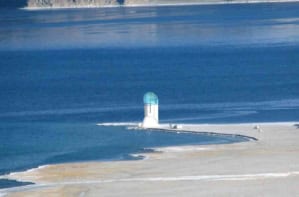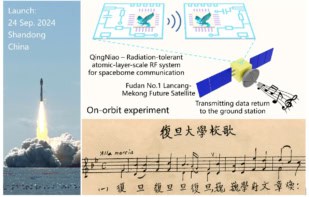This year’s Nobel Prize for Physics has been awarded to three astrophysicists who pioneered the fields of neutrino astrophysics and X-ray astronomy. Ray Davis and Masatoshi Koshiba share half the prize for “pioneering contributions to astrophysics, in particular for the detection of cosmic neutrinos". Riccardo Giacconi receives the other half of the prize for “pioneering contributions to astrophysics, which have led to the discovery of cosmic X-ray sources.”
Although vast numbers of neutrinos are produced by the Sun, they are very difficult to detect because they interact very weakly with matter. Ray Davis, now at the University of Pennsylvania built the first experiment to detect neutrinos from the Sun – a giant underground tank containing 600 tonnes of dry-cleaning liquid. However, Davis only detected about one third of the flux of neutrinos predicted by theory. Masatoshi Koshiba of the University of Tokyo later built the gigantic Kamiokande detector in Japan and confirmed Davis’s results.
Now it is known that the electron neutrinos produced in the Sun can oscillate into other types of neutrino – such as muon and tau neutrinos – that could not be detected by these experiments. Recent experiments, such as SuperKamiokande in Japan and the Sudbury Neutrino Observatory in Canada, have confirmed that oscillations do indeed occur. This means that neutrinos have mass, which requires new physics beyond the Standard Model of particle physics.
Riccardo Giacconi was one of the pioneers of X-ray astronomy. Since X-rays from the Sun and other sources are absorbed by the atmosphere, X-ray astronomy can only be carried out from space. Giaconni was the first astronomer to detect X-rays from outside our solar system and also the first to prove that the universe contains an X-ray background. X-ray astronomy is now one of the most active areas of astrophysics and two large observatories – Chandra and XMM Newton – have been launched in recent years.
Giacconi received his PhD from the University of Milan in Italy and played a key role in the Einstein Observatory in the 1970s. He has been director of the Hubble Space Telescope Science Institute in the US and director general of the European Southern Observatory. In 1999 he was appointed president of Associated Universities Inc, the not-for-profit body that operates the National Radio Astronomy Observatory in the US.
All three prize winners have previously received the Wolf Prize. Davis and Koshiba shared the prize in 2000, while Giaconni shared the 1987 Wolf Prize with Herbert Friedman of the US Naval Research Laboratory and Bruno Rossi of the Massachusetts Institute of Technology.
The winners will share the cash prize of 10 million Swedish kroner – around £700 000 – and will receive their gold medals and diplomas in Stockholm on 10 December.



